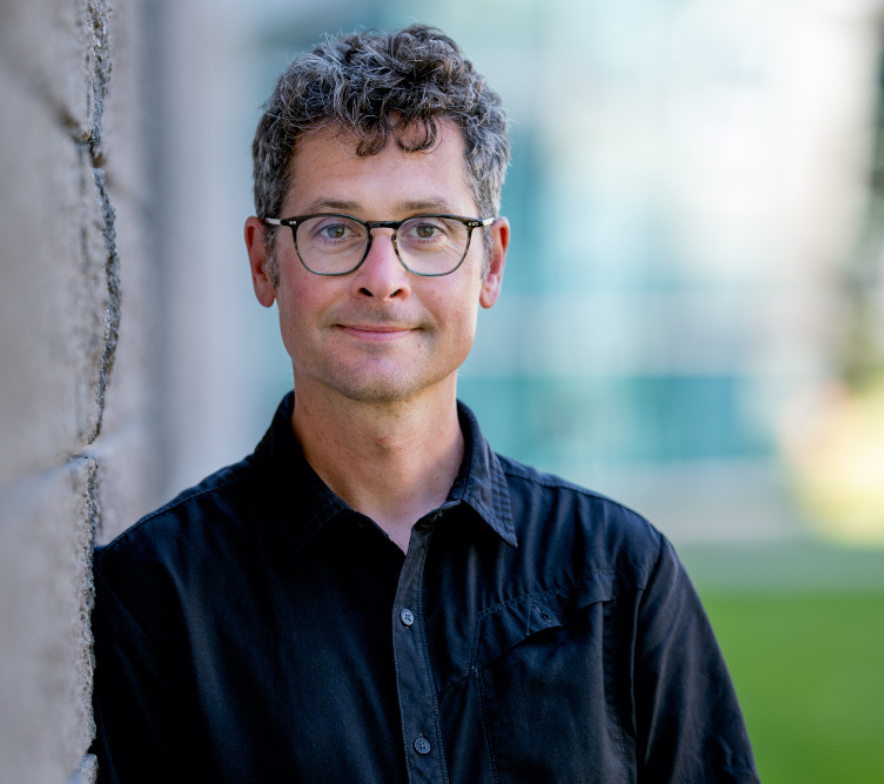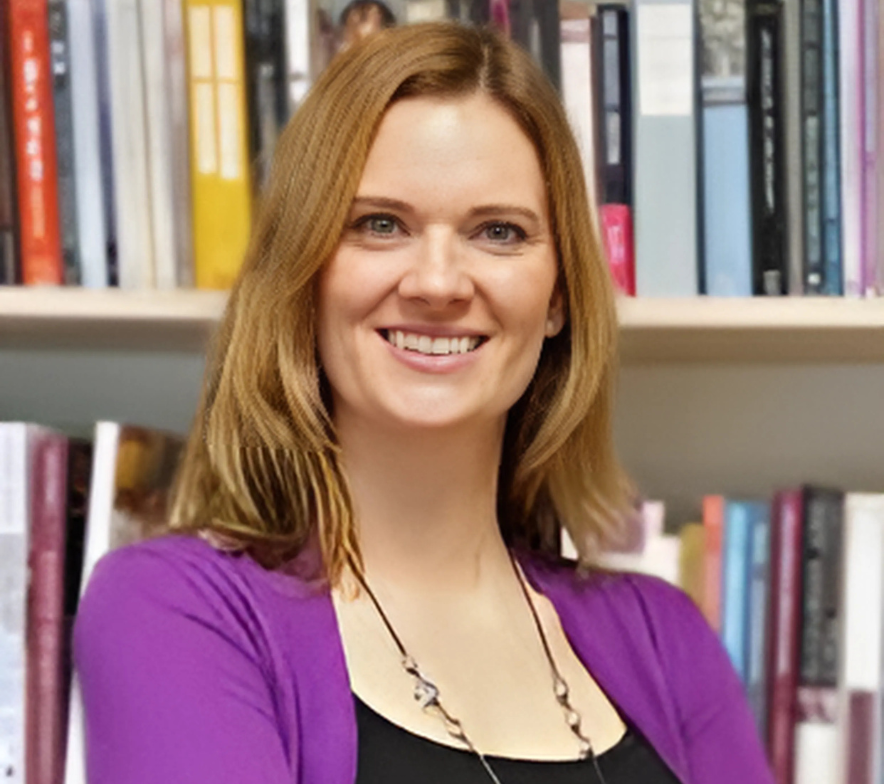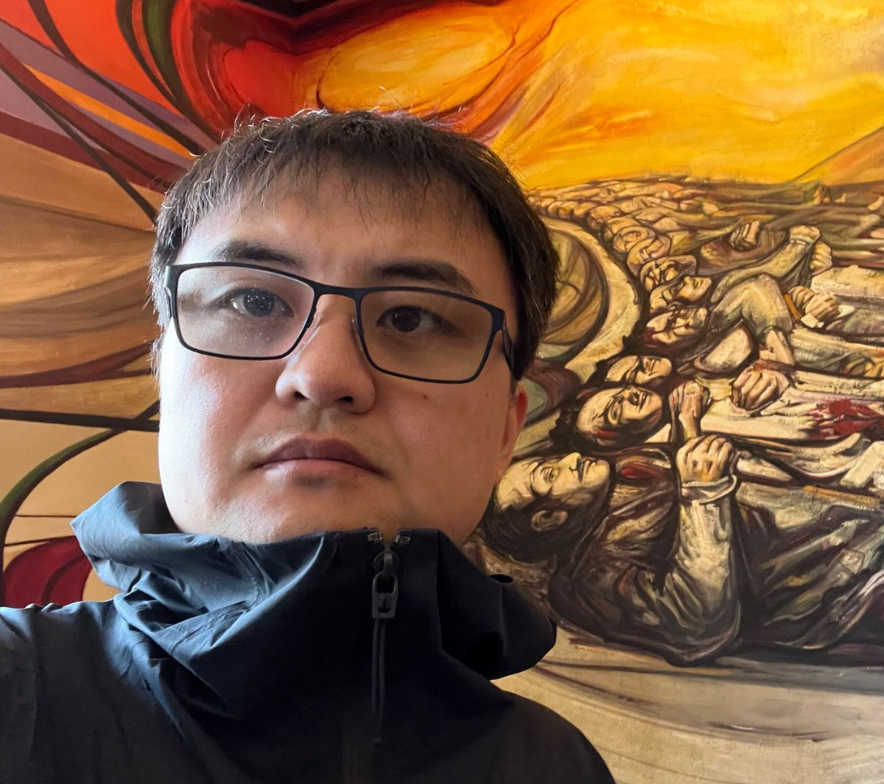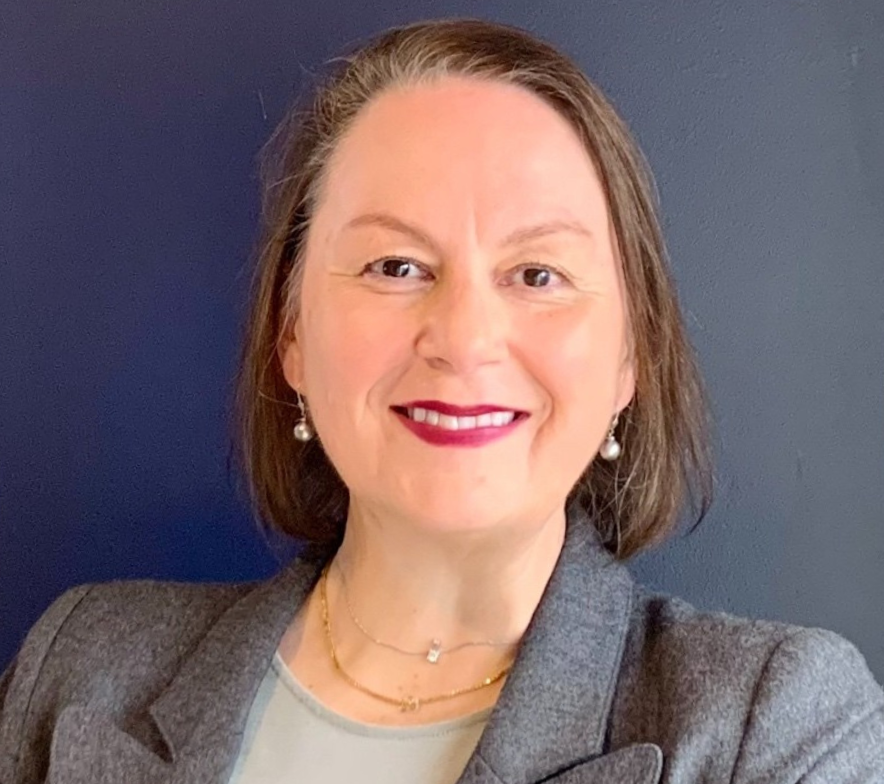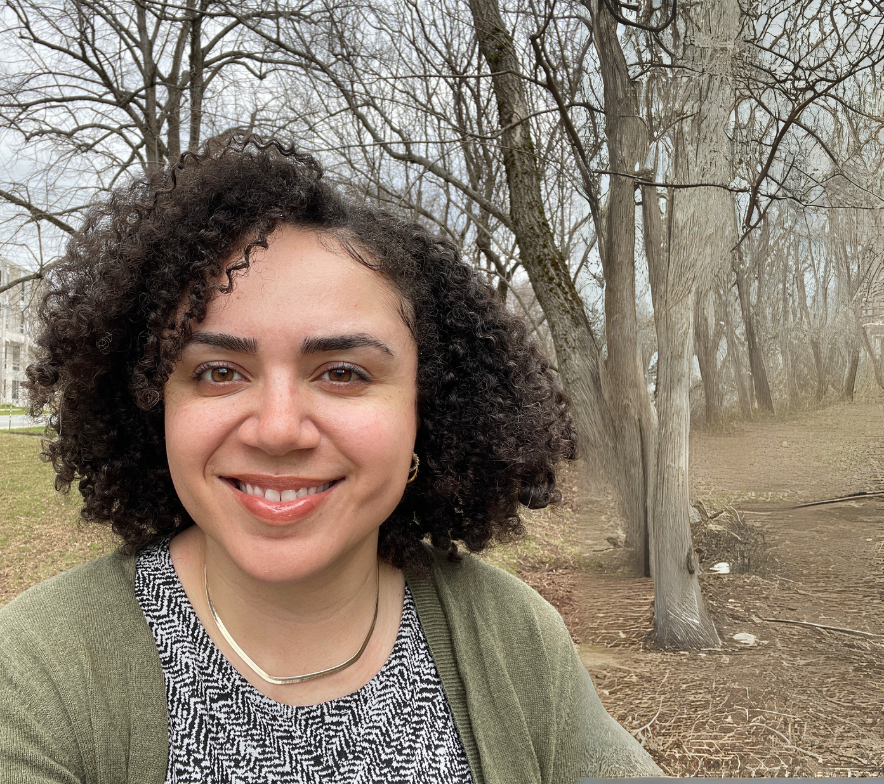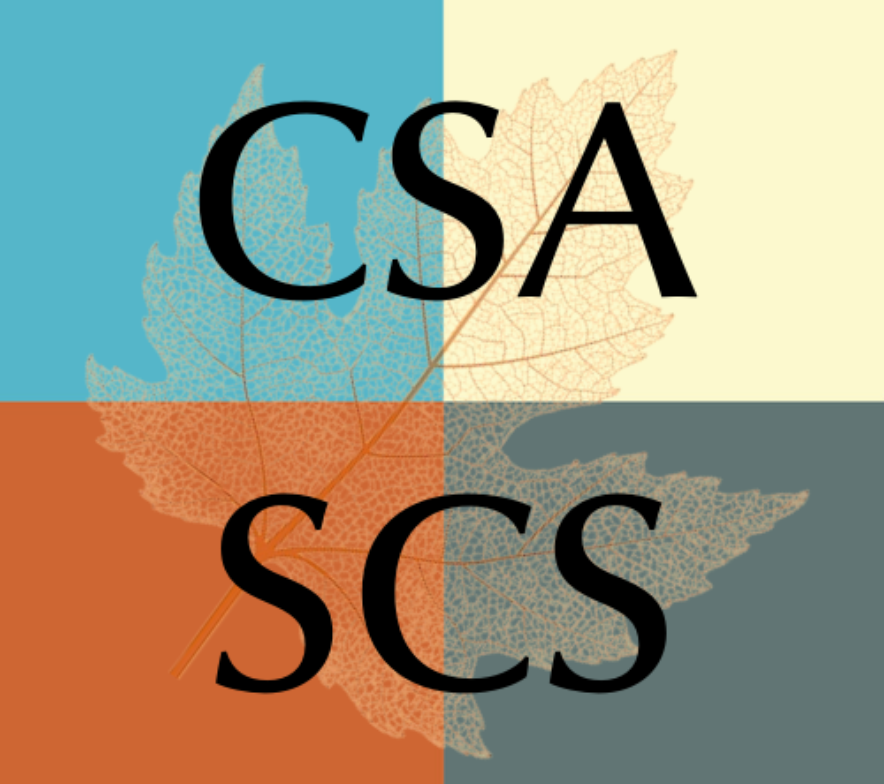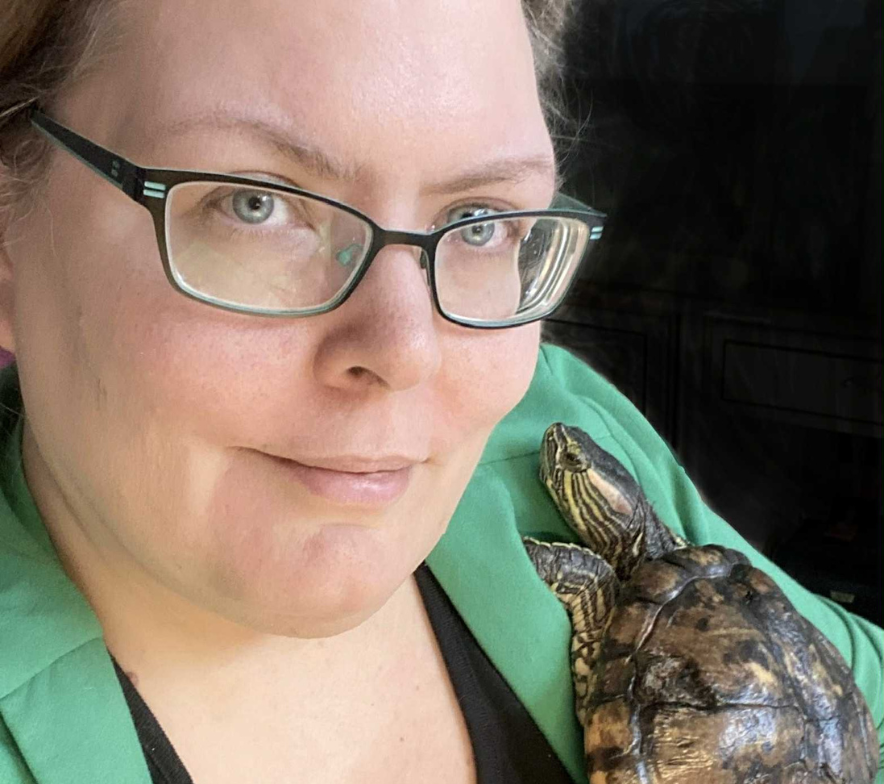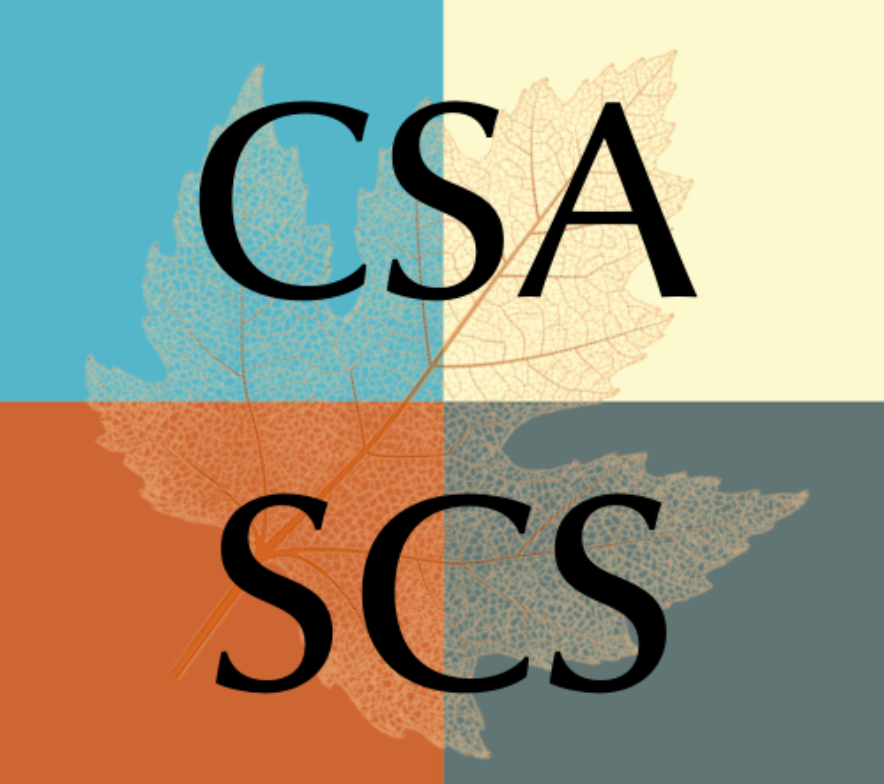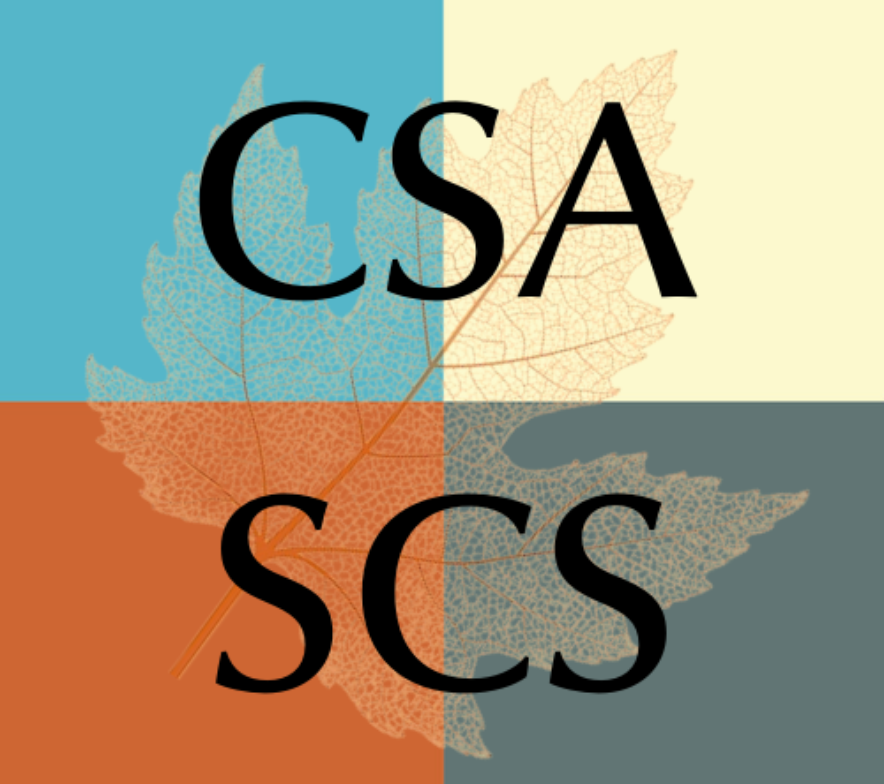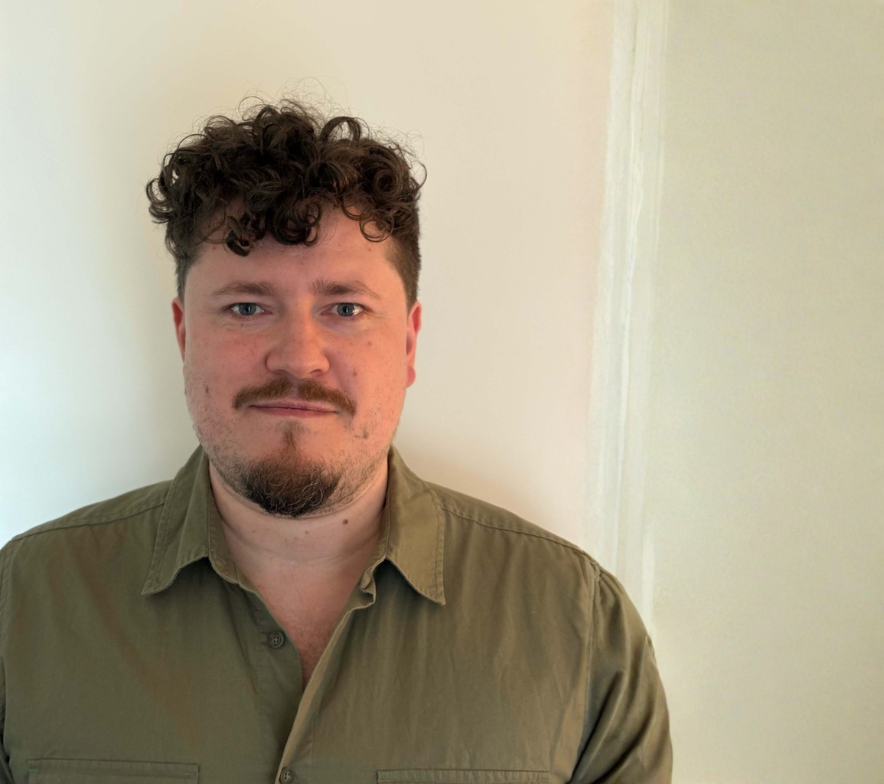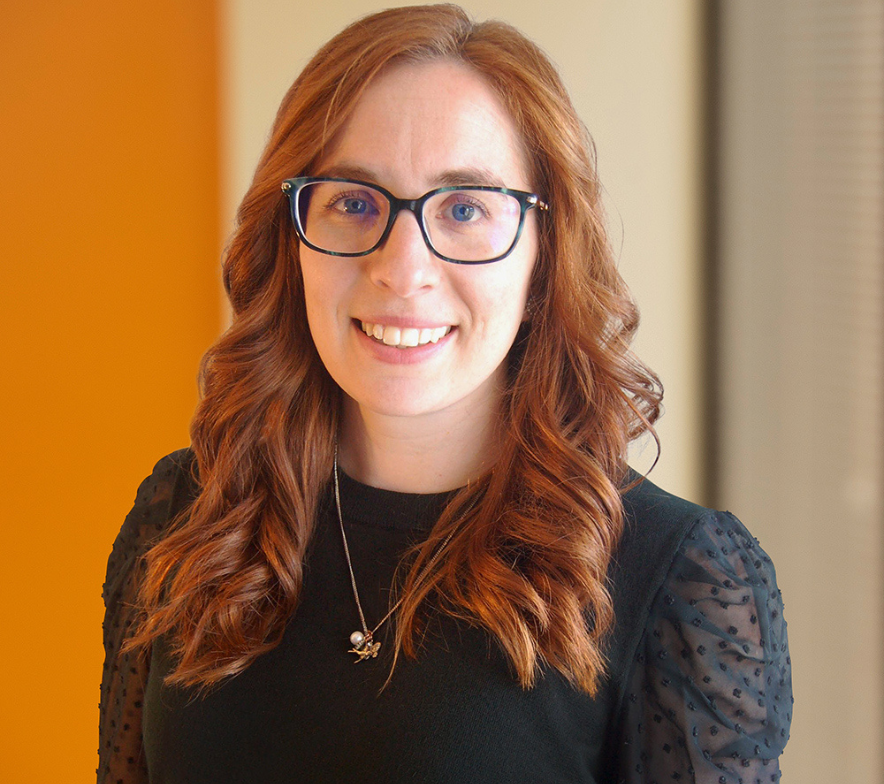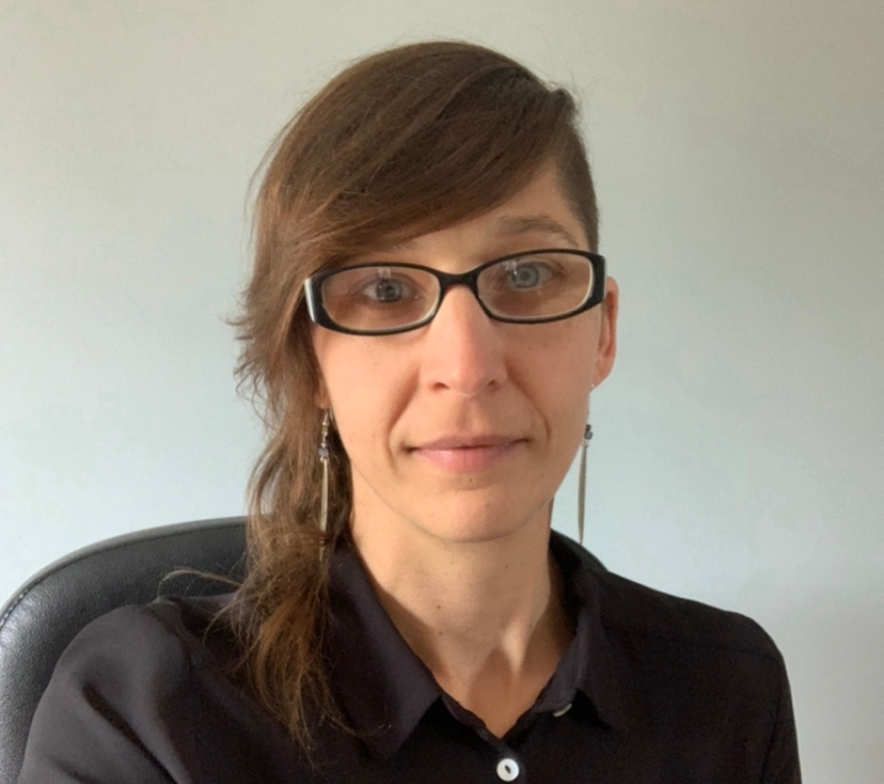Executive Committee
The Executive Committee is comprised of the President, President Elect, Past President, Treasurer, Secretary, Managing Editor of the Canadian Review of Sociology journal, the Communications Officer (also referred to as ‘Officers’), and the chairs of the following subcommittees: Anti-Islamophobia; Black Caucus; Decolonization; Equity Issues; Francophone Affairs; Justice for Palestine; Public Engagement and Professional Concerns; Research Advisory, and Student Concerns (also referred to as ‘Directors’).
Officers are elected by the membership for their specific position and serve a three-year term. Terms may be extended for one year for all but the President’s position with Executive Committee approval. Directors are chosen by their particular subcommittee and may sit on the Executive Committee from one to three years.
2025-2026 Executive Committee
See also Canadian Sociological Association Subcommittees
President: Dr. Mark C.J. Stoddart
Mark Stoddart is a Professor of Sociology at Memorial University. His areas of research, teaching, and student supervision include environmental sociology, political sociology and social movements, and communications and culture. His main current research interests include the sociological dimensions of climate change, oil and energy transitions, and sustainable tourism development. He is co-author of the book Industrial Development and Eco-Tourisms: Can Oil Extraction and Nature Conservation Co-Exist? (Palgrave). Through a comparative analysis of Denmark, Iceland, Newfoundland and Labrador, Norway, and Scotland, this project offers valuable lessons for how coastal societies can better navigate relationships between resource extraction and nature-based tourism in the context of climate change. He is co-editor of the Handbook of Anti-Environmentalism (Elgar) and Revitalizing PLACE through Social Enterprise (Memorial University Press) and is Associate Editor of the journal Environmental Sociology. Dr. Stoddart is a member of the Royal Society of Canada College of New Scholars, Artists, and Scientists. He is also the 2024 recipient of the Memorial University Faculty of HSS Dean’s Award for Distinguished Scholarship.
President-Elect: Dr. Catherine Corrigall-Brown
Catherine Corrigall-Brown is a Professor and the Head of the Sociology Department at the University of British Columbia. Her research focuses on social movements and protest, particularly examining what keeps individuals involved in activism over time, framing, and identity. She is the author of seven books, including Patterns of Protest: Trajectories of Participation in Social Movements (Stanford University Press, 2011) and Keeping the March Alive: How Grassroots Activism Survived Trump’s America (New York University Press, 2022). She is also the author of textbooks for Introduction to Sociology in Canada called Imagining Sociology, now in its 3rd edition with Oxford University Press. She has published more than 40 articles, book chapters, and review essays. These works have appeared in journals such as Social Forces, Mobilization, American Behavioral Scientist, the International Journal of Comparative Sociology, Sociological Perspectives, Social Movement Studies, and the Canadian Review of Sociology. This research was funded by grants from the Social Sciences and Humanities Research Council (Canada) and the National Science Foundation (USA). She has served as chair of the Collective Behavior and Social Movement section and the Peace, War, and Social Conflict section of the American Sociological Association. She is currently a deputy editor of Mobilization, the premiere social movements journal, and has served as the Chair of the SSHRC adjudication panels for Sociology. She was awarded the Outstanding Contribution to Teaching Award from the CSA in 2022 and the UBC Killam Faculty Teaching Prize in 2017. She also received the Early Investigator Award for best early career scholar from the Canadian Sociological Association in 2013.
Past-President: Dr. Liam Swiss
Liam Swiss is Professor of Sociology, and Head of the Department of Sociology at Acadia University. His research examines foreign aid, global development, the politics of Canadian aid policy, and gender equality. His current SSHRC Insight Development Grant (with Dr. Lisa Kaida, McMaster University) examines the relationship between Canadian foreign aid and the remittance sending behaviour of migrants to Canada from low- and middle-income countries. His published research has appeared in journals such as the American Sociological Review, Social Forces, Social Science Research, and World Development, among others. He is the author of the book The Globalization of Foreign Aid: Developing Consensus (Routledge 2018). He is a two-time former President of the Canadian Association for the Study of International Development, and was a co-founder of the CSA’s Sociology of Development Research Cluster.
Treasurer: Dr. Qiang Fu
Dr. Qiang Fu is an Associate Professor of Sociology at the University of British Columbia (UBC). He co- directs the Centre for Chinese Research and chairs the Graduate Studies in Sociology at UBC. His recent publications have appeared in journals such as the Canadian Review of Sociology, American Journal of Epidemiology, American Journal of Sociology, Annals of the American Association of Geographers, Annals of Epidemiology, Journal of the Royal Statistical Society: Series A, and Sociological Methods & Research. His ongoing research, supported by two SSHRC Insight Grants awarded in 2021 and 2024, adopts a reflexive, historical, critical, comparative, and computational approach to investigate the social integration, everyday life, and political orientation of immigrants and minorities from coast to coast to coast.
Secretary: Dr. Zohreh BayatRizi
Zohreh BayatRizi is an Associate Professor in Sociology at the University of Alberta. She received her MA and PhD degrees from the University of British Columbia and her BA degree from the University of Tehran. Her main interests are the history of sociology, sociology of death and dying, and sociology of Iran. She is the author of Life Sentences: The Modern Ordering of Mortality. She teaches courses in social theory, sociology of death, and introductory sociology. She has previously served on the CSA Research Advisory Subcommittee and chaired the Social Theory Research Cluster.
Communications Officer: Dr. Mitchell McIvor
Mitchell McIvor is an Assistant Professor of Sociology (Teaching Stream) at the University of Toronto, St. George Campus. He specializes in Universal Design for Learning, Equity-Based Assessments, Community Engaged Learning, and teaching large Introduction to Sociology courses. He served as the ASA’s Teaching and Learning Section newsletter editor from 2019-2023 and as the Chair of the ASA Teaching and Learning section publications committee from 2020-2023. He has won numerous Teaching Awards including the University of Toronto Student’s Unions 2025 Educator of the Year Award and the Most Outstanding Teacher Award at the University of West Georgia (2019 and 2020). Dr. McIvor was born and raised in Saskatchewan and has been a member of the CSA since 2010.
Canadian Review of Sociology Journal Managing Editor: Dr. Rochelle R. Côté
Rochelle R. Côté, FRSA (PhD, Toronto) is an Associate Professor in the Department Sociology and Faculty of Business Administration at Memorial University, and is a Global Member of the Dilin Duwa Centre for Indigenous Business Leadership at the University of Melbourne, Australia. Dr. Côté’s works predominantly with Indigenous colleagues and communities in Canada, Australia, and New Zealand, with a research focus on entrepreneurship as a pathway to economic, social, and cultural prosperity. She is also a member of the SSHRC-NCTR WISH grant team, tasked with documenting and amplifying urban Indigenous stories in partnership with Indigenous community organizations in Newfoundland and Saskatchewan. Her work has appeared in such journals as Business and Society, Social Networks, Social Problems, Demography, Sociology, Journal of Sociology, and American Behavioral Scientist, alongside various edited volumes, and she has consulted with the Office of the Federal Interlocutor for Métis and Non-Status Indians, the Aboriginal Policing Directorate, the Social Research and Demonstration Corporation, and most recently, the Innu Partnership and Business Development Office. She is also co-editor of the recently published edited volume Handbook on Inequality and Social Capital (Edward Elgar), with colleagues Steve McDonald & Jing Shen.
Anti-Islamophobia Subcommittee Co-Chair: Dr. Leila Benhadjoudja
Leila Benhadjoudja (She/Elle) is an Associate Professor at the Institute of Feminist and Gender Studies and the School of Sociological and Anthropological Studies at the University of Ottawa. She holds a PhD in Sociology and specializes in sociology of racism and anti-racism, critical race studies, critical Muslim studies, and Islamophobia studies. Benhadjoudja is a co-founder of the Feminist Festival in Ottawa . Her publications include articles such as “Racial Secularism as Settler Colonial Sovereignty in Quebec” in the Islamophobia Studies Journal and “Territories of Liberation: Muslim Feminist Perspectives” in the journal Tumultes.
Anti-Islamophobia Subcommittee Co-Chair: Dr. Ayesha Mian Akram
Dr. Ayesha Mian Akram is an Assistant Professor (Teaching) in the Department of Sociology at the University of Calgary. She completed her doctorate in 2023 from the University of Windsor where her SSHRC-funded dissertation research explored Muslim women’s community-building and the politics of resistance through wellness. Her community and academic experiences have led to a scholarly agenda located in the intersections of gender, racialization, emergent research methodologies, and the scholarship of teaching and learning. Ayesha has been involved with CSA since 2015 through the Student Concerns Subcommittee, the Equity Issues Subcommittee, and the Women's Caucus, and is now pleased to serve as the co-founder and co-chair of the Anti-Islamophobia Subcommittee.
Black Caucus Co-Chair: Dr. Jessica T. Bundy
Jessica T. Bundy (she/her) is an Assistant Professor in the Department of Sociology and Anthropology and is also affiliated with the Criminal Justice and Public Policy (CJPP) program at the University of Guelph. She is an interdisciplinary Black Studies scholar whose work focuses on the intertwined impacts of colonialism, systemic racism, patriarchy, and capitalism on Black communities in Canada and the wider-African Diaspora. Her work exists at the intersection of sociology, critical criminology, legal studies, women and gender studies, political science, and history with the objective of exploring inequity, inequality, and marginalization through various identities with a focus on race. Of particular concern to her are the ways in which ant-Black racism manifests in relation to the criminal justice system.
Black Caucus Co-Chair: Dr. Giselle Thompson
Giselle Thompson is the Assistant Professor of Black Studies in Education at the University of Alberta, where she teaches in the Social Justice and International Studies in Education graduate specialization and the Bachelor of Education program. Her award-winning research exists at the nexus of critical studies in the Sociologies of Race, Education, Gender, Diaspora, and International Development and seeks to understand how colonialism, racial capitalism, white supremacy, and modernity operate globally and are implicated in the ongoing (mis)education of Black people. She is particularly concerned with how anti-Black racism in its various iterations including, but not limited to, lack of accessibility, under-resourcing, and curricular deficits impede on holistic learning for Black school-aged children and youth and diasporic groups in both local and transnational contexts. Her current research project examines the ways in which the transhistorical phenomenon of Black motherwork is deployed in school settings and in other sites of learning to resist these social maladies, whilst transmitting ethics of love, care, and concern.
Decolonization Subcommittee Chair: To be determined
Equity Issues Subcommittee Co-Chair: Kristen A. Hardy
Kristen A. Hardy (she/her) is a sessional instructor in multiple departments in the Faculty of Arts at the University of Winnipeg (Treaty 1 territory), and also holds service positions with Brandon University (Treaty 1 and Treaty 2 territory). An interdisciplinary scholar who brings a sociological lens to her teaching and research, Kristen explores relations between bodyminds and systems of power, with an interest in how forms of physical and mental diversity have historically been, and continue to be, pathologized and marginalized. Her publications are primarily in the areas of fat studies and disability studies.
Equity Issues Subcommittee Co-Chair: Dr. Foroogh Mohammadi
Foroogh Mohammadi is an Assistant Professor of Sociology at Acadia University. She is a qualitative researcher focusing on the sociology of migration, space, place, racialization, and belonging in both her research and teaching. In her recent research, Foroogh Mohammadi investigated how Iranian immigrants create, develop, or resist a sense of belonging to home in Atlantic Canadian cities and Ontario. She has published in the Space and Culture, Qualitative Sociology Review, and Contemporary Sociology journals. Foroogh is an active member of various academic societies. She has been the co-organizer of the Qualitative Analysis Conference since 2021. She is also an active member of the SSSP (Society for the Study of Social Problems), where she serves as a Co-Chair of the Critical Race and Ethnic Study Division (2025-2027)
Francophone Affairs Subcommittee Chair: Dr. Guillaume Durou
Guillaume Durou is an Assistant Professor, Campus Saint-Jean whose research areas include; Sociologie historique canadienne et Québécoise, sociologie historique de la famille, antisémitisme, histoire du capitalisme, analyse des classes, théories des classes sociales, et Francophonie de l'Ouest. He is a co-founder of the Francophone Affairs Subcommittee and the Prix d'excellence en sociologie de langue française. In addition to this, he founded the Marxist Sociology Research Cluster and is the Chair of the Comparative and Historical Sociology Research Cluster.
Justice for Palestine Subcommittee Co-Chair: Dr. Katie MacDonald
Katie MacDonald (she/her) is an Associate Professor, Sociology and MAIS in the Faculty of Humanities and Social Sciences at Athabasca University. She is a community engaged researcher located in amiskwaciwâskahikan, or what is currently known as Edmonton. She is interested in how people work collectively and what learning looks like in these spaces. She look at issues in relation to Canadian affordable housing and experiences of transnational solidarity.
Justice for Palestine Subcommittee Co-Chair: Malak El-Outa
Malak El-Outa is PhD student at Carleton University. Her research explores the lived experiences of Lebanese-Canadian Twelver Shi’i Muslims in the context of Israel’s atrocities in Lebanon, the ongoing genocide in Occupied Palestine, and the global rise of anti-Shi’i sentiment. Drawing from her roots in South Lebanon, her work engages with collective memory studies, theories of resistance subjectivity, and liberation theologies to examine how diasporic communities respond to grief, mass violence, and communal isolation through distinct practices and understandings of resistance and sumud (steadfastness). Beyond her research, Malak is engaged in student organizing and community- based initiatives centered on anti-imperialism, and improving post-secondary student experiences through peer support and advocacy for greater accessibility and inclusivity in academia.
Public Engagement and Professional Concerns Subcommittee Co-Chair: Dr. Tom Buchanan
Tom Buchanan is a Professor of Sociology at Mount Royal University. While serving as Chair of the Sociology and Anthropology Department (2012-2022), he received MRU’s Distinguished Administrator/Manager Award. His research focuses on examining gender inequalities at work, in organizations, and in families with an emphasis on the gender gap in parenting time and its consequences. In addition, Tom and collaborators have developed measures of helicopter parenting. Tom also explores the experiences of students with disabilities and parents of children with disabilities. Tom was a member of a team of faculty, staff, and students organizing anti-racist efforts in sociology and anthropology receiving the Faculty of Arts, MRU, Outstanding Team Award. Tom served as Co-Chair of MRU’s Joint Diversity and Equity Committee (2017-2021). Tom typically teaches introductory sociology and quantitative research methods courses. He is also a co-instructor of a multidisciplinary Sri Lanka field school for which he teaches comparative social problems.
Public Engagement and Professional Concerns Subcommittee Co-Chair: Dr. Andrey Kasimov
Andrey Kasimov is a Senior Research Associate at the Diversity Institute. He contributes to large-scale projects through survey design, mixed-methods data analysis, and the development of evaluation frameworks that inform policy and practice. He holds a PhD in Sociology from McMaster University, where his research examined digital communication networks, online communities, and the spread of mis/disinformation, with a focus on how decentralized far-right groups mobilize in difficult-to-access online spaces. Andrey has organized and chaired panels, roundtables, and workshops on digital culture, researcher safety, and emerging technologies, and has delivered invited talks and training sessions for early-career researchers on safe and effective approaches to online research.
Research Advisory Subcommittee Chair: Dr. Kara Brisson-Boivin
Dr. Kara Brisson-Boivin is the Director of Research for MediaSmarts- Canada’s non-profit centre for digital media literacy. She is responsible for the planning, methodology, implementation, and dissemination of key findings from original MediaSmarts’ research studies as well as evaluations of MediaSmarts’ programs. Dr. Brisson-Boivin also holds an appointment as an Adjunct Research Professor in the Sociology Department at Carleton University. She works with a number of partners on online issues including digital well-being, digital equity and inclusion, privacy, hate, activism, and algorithms and artificial intelligence. She leads MediaSmarts’ efforts to centre and empower youth voices in the field of digital media literacy education as well as their advocacy for a national digital media literacy strategy for Canada.
Student Concerns Subcommittee Chair: Nicole McNair
Nicole McNair is a PhD student in Sociology at McMaster University and is also enrolled in the Gender & Social Justice Diploma Program. As a white settler with treaty responsibilities, Nicole's academic interests are influenced by Indigenous thought and settler-colonial studies, political sociology and social movements, decolonial methodologies, whiteness studies and abolition feminism. Nicole's PhD research examines the intersections of Indigenous motherhood, activism and fear that have emerged at various times and sites of resistance within the colonial borders of Canada. Nicole is engaged in student advocacy work through their involvement with their departmental Graduate Student Caucus and as Student Concerns Subcommittee Representative cross-appointed with the Decolonization Subcommittee with the Canadian Sociological Association.

